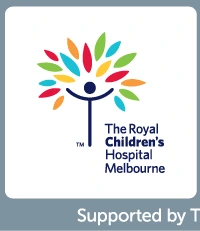Observational and Registry-based Studies
Observational studies, also known as non-interventional studies, are studies in which researchers observe individuals who received or were exposed to a certain factor and measure variables of interest. The allocation to treatment or exposure is not determined by the study protocol.
Registry-based studies are an investigation of a research question using the data collection infrastructure or patient population of one or several patient registries. A registry-based study is either a clinical trial or a observational study.
For registry-based clinical trials, see MCRI Sponsored Investigator Initiated Trials (IITs) for the planning, conduct and reporting of your research.
For registry-based observational research, refer to Observational Studies below.
Observational Studies
MCTC060 Template | Melbourne Children's observational studies protocol
We advise that registry-based studies use our observational protocol template and add/remove sections as applicable.
Filing Structures:
- Multisite Observational Studies Filing structure
- Single-site Observational Studies Filing structure with a merged SMF/ISF structure.
Statistics and Data Management resources found on the CEBU SOP and Templates page. Including Statistical Analysis Plan templates and REDCap non-trial SOPs.
CEBU also offer the training course: Observational Studies - Modern concepts & Analytic methods
Quality Improvement/Quality Assurance
Clinical Audits / Quality Assurance - Protocol template
Quality Assurance (QA) projects, sometimes referred to Quality Improvement (QI), usually do not fall within the definition of human research. In most cases, the goals of human participant research and quality improvement projects do not intersect but sometimes they do. Researchers are responsible for liaising with the RCH Research Ethics & Governance Office to determine if their project involves human participant research and requires ethics approval.
QA/QI is the combined efforts of the workforce and others – including consumers, patients and their families, researchers, planners and educators – to make changes that will lead to better patient outcomes (health), better system performance (care) and better professional development. It is a systematic data-driven activity designed to bring immediate improvement in a local setting/organisation.
See the REG website for further information about QA/QI studies including application pathways, governance and ethics requirements.
Other resources
For more information on and support for longitudinal cohort studies from the Melbourne Children’s Campus, LifeCourse is great place to start.
LifeCourse supports over 40 studies including 23 core longitudinal cohorts spanning conception to adulthood (including two trans-generational studies) and involving over 54,000 participants, with many enriched through collection of biosamples, imaging, and linkage to administrative data.
The VCCC Alliance have done extensive work on Registry Base Trials, and offer resources and education. These can be found on the VCCC Website.
The VCCC Alliance Registry-Based Trials Program combines conventional trial methodology with registry systems to produce real-world clinical evidence.




